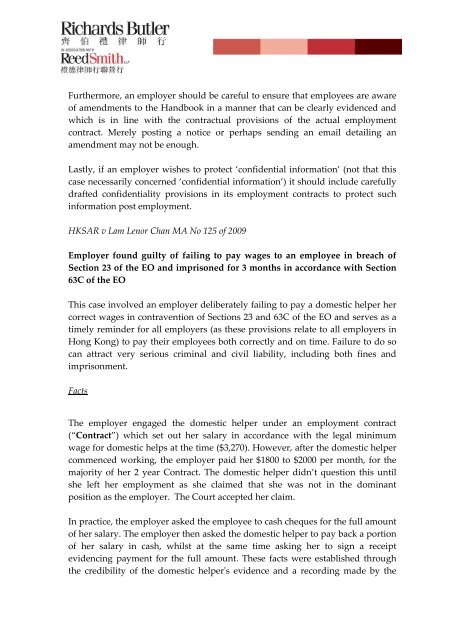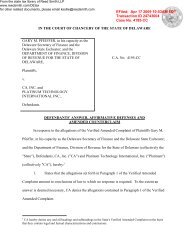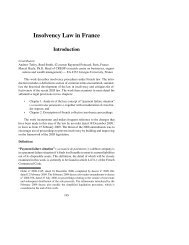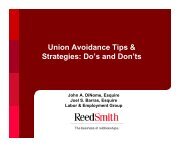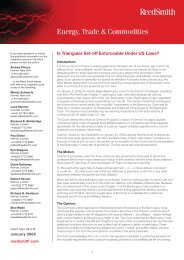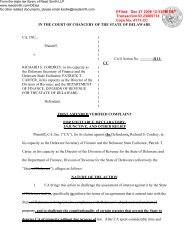Employment Law Alert - October 2009 - Reed Smith
Employment Law Alert - October 2009 - Reed Smith
Employment Law Alert - October 2009 - Reed Smith
Create successful ePaper yourself
Turn your PDF publications into a flip-book with our unique Google optimized e-Paper software.
Furthermore, an employer should be careful to ensure that employees are aware<br />
of amendments to the Handbook in a manner that can be clearly evidenced and<br />
which is in line with the contractual provisions of the actual employment<br />
contract. Merely posting a notice or perhaps sending an email detailing an<br />
amendment may not be enough.<br />
Lastly, if an employer wishes to protect ‘confidential information’ (not that this<br />
case necessarily concerned ‘confidential information’) it should include carefully<br />
drafted confidentiality provisions in its employment contracts to protect such<br />
information post employment.<br />
HKSAR v Lam Lenor Chan MA No 125 of <strong>2009</strong><br />
Employer found guilty of failing to pay wages to an employee in breach of<br />
Section 23 of the EO and imprisoned for 3 months in accordance with Section<br />
63C of the EO<br />
This case involved an employer deliberately failing to pay a domestic helper her<br />
correct wages in contravention of Sections 23 and 63C of the EO and serves as a<br />
timely reminder for all employers (as these provisions relate to all employers in<br />
Hong Kong) to pay their employees both correctly and on time. Failure to do so<br />
can attract very serious criminal and civil liability, including both fines and<br />
imprisonment.<br />
Facts<br />
The employer engaged the domestic helper under an employment contract<br />
(“Contract”) which set out her salary in accordance with the legal minimum<br />
wage for domestic helps at the time ($3,270). However, after the domestic helper<br />
commenced working, the employer paid her $1800 to $2000 per month, for the<br />
majority of her 2 year Contract. The domestic helper didn’t question this until<br />
she left her employment as she claimed that she was not in the dominant<br />
position as the employer. The Court accepted her claim.<br />
In practice, the employer asked the employee to cash cheques for the full amount<br />
of her salary. The employer then asked the domestic helper to pay back a portion<br />
of her salary in cash, whilst at the same time asking her to sign a receipt<br />
evidencing payment for the full amount. These facts were established through<br />
the credibility of the domestic helperʹs evidence and a recording made by the


